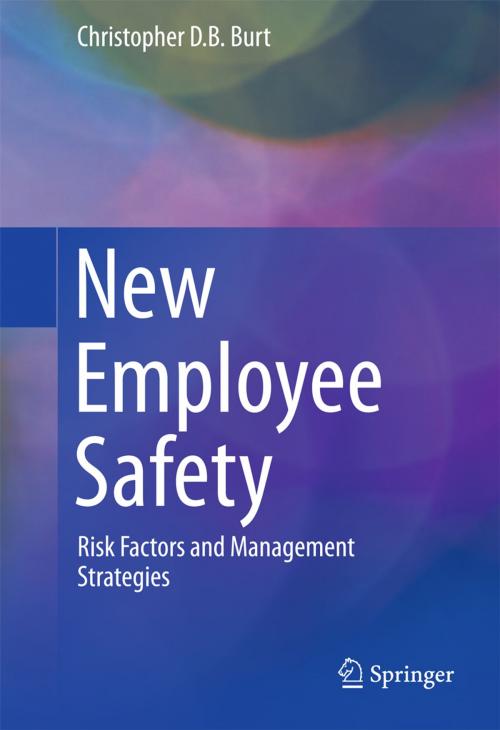New Employee Safety
Risk Factors and Management Strategies
Nonfiction, Health & Well Being, Psychology, Research, Occupational & Industrial Psychology| Author: | Christopher D. B. Burt | ISBN: | 9783319186849 |
| Publisher: | Springer International Publishing | Publication: | May 25, 2015 |
| Imprint: | Springer | Language: | English |
| Author: | Christopher D. B. Burt |
| ISBN: | 9783319186849 |
| Publisher: | Springer International Publishing |
| Publication: | May 25, 2015 |
| Imprint: | Springer |
| Language: | English |
This reference introduces an innovative new-employee safety risk model, keyed to a typical new worker becoming acclimated to a new job and workplace. It reviews risk factors, their root causes, and how they can be addressed and minimized through targeted strategies at each stage of a worker's early months on the job. The model and its supporting findings dovetail with current thinking on employee safety and organizational accountability. And, of extra benefit to employers, the risk management strategies to improve new employee safety can be undertaken with minimal expenditure of time, money, and disruption.
The book's real-world framework:
· Analyzes high accident rates among new hires.
· Describes four basic types of job applicants and safety concerns common to each.
· Examines the role of recruitment and selection processes in promoting employee safety.
· Discusses safety benefits and risks surrounding pre-start training.
· Models the use of new employees' job familiarization to minimize safety risks.
· Identifies safety risks associated with helping behaviors.
· Identifies employee measures that can be used in assessing job safety risk.
· Integrates safety management strategies with other human resource management activities
New Employee Safety provides clear practical guidance to individuals involved in occupational safety management. The book makes a useful text for undergraduate and postgraduate courses on occupational safety management, and in fields such as behavioral science, psychology, business management, and human resources.
This reference introduces an innovative new-employee safety risk model, keyed to a typical new worker becoming acclimated to a new job and workplace. It reviews risk factors, their root causes, and how they can be addressed and minimized through targeted strategies at each stage of a worker's early months on the job. The model and its supporting findings dovetail with current thinking on employee safety and organizational accountability. And, of extra benefit to employers, the risk management strategies to improve new employee safety can be undertaken with minimal expenditure of time, money, and disruption.
The book's real-world framework:
· Analyzes high accident rates among new hires.
· Describes four basic types of job applicants and safety concerns common to each.
· Examines the role of recruitment and selection processes in promoting employee safety.
· Discusses safety benefits and risks surrounding pre-start training.
· Models the use of new employees' job familiarization to minimize safety risks.
· Identifies safety risks associated with helping behaviors.
· Identifies employee measures that can be used in assessing job safety risk.
· Integrates safety management strategies with other human resource management activities
New Employee Safety provides clear practical guidance to individuals involved in occupational safety management. The book makes a useful text for undergraduate and postgraduate courses on occupational safety management, and in fields such as behavioral science, psychology, business management, and human resources.















